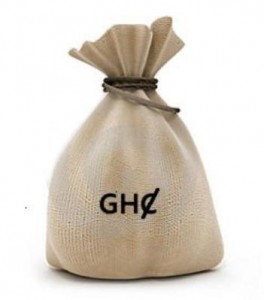Ghana government violating Petroleum Revenue Management law
 The Government of Ghana appears to be violating Ghana’s Petroleum Revenue Management Act (PRMA), passed by Parliament to guide the utilization of revenues from Ghana’s modest petroleum resources.
The Government of Ghana appears to be violating Ghana’s Petroleum Revenue Management Act (PRMA), passed by Parliament to guide the utilization of revenues from Ghana’s modest petroleum resources.
According to the report on petroleum revenues for the first half of 2015, an amount of $56.69 million was for the first time, withdrawn from the Stabilization Fund which is to support the budget during revenue shortfalls, to prop up the Annual Budget Funding Amount (ABFA) which is the share of petroleum revenue that goes into the annual budget.
The transfer was due to a shortfall in the projected quarterly ABFA receipts for the first quarter of 2014, but the Public Interest and Accountability Committee (PIAC), the independent body which is mandated to check government’s effective use of petroleum revenues in accordance with the law, said the transfer “may not have been necessary” if the Bank of Ghana did not sweep $222.93 million from the ABFA account.
While presenting the 2016 budget to Parliament, Finance Minister Seth Terkper said that the $222.93 million (GH₵666.06) which was the closing balance on the ABFA account at December 31, 2014, was swept by the Bank of Ghana to assess government’s position for the 2014 financial year.
The PIAC said this money, as well as some $70 million of $100 million swept from the Sinking Fund, need to be refunded to help prevent further withdrawals from the Stabilization Fund.
In mid 2015, Finance Minister, Seth Terkper also said that $100 million in the Sinking Fund – the excesses of the Stabilization Fund meant for debt settlement – was swept by the Bank of Ghana.
“The $222.93 million that was swept by the Bank of Ghana should be refunded to ABFA account as soon as practicable, just as 30 per cent of the Sinking Fund of the $100 million that was also swept, was restored by the BoG. This would help prevent further withdrawal from the Ghana Stabilization Fund in 2015.”
“It is also important to stress that the non-refund of the outstanding balance together with the remaining $70 million of the swept sinking fund would be tantamount to a violation of the PRMA,” PIAC said in its semi-annual report for the first half of 2015.
In a phone interview with ghanabusinessnews.com, the Executive Director of the Africa Centre for Energy Policy (ACEP) Dr Mohammed Amin Adam, said the transfer from the Stabilization Fund was not lawful adding that ACEP has been making representations to Parliament to ring-fence oil revenue such that they cannot be used for unintended purposes.
The committee’s report showed, about 77 per cent of revenue expected from gas during the period was not realized.
Though 10,606 million British Thermal Units of wet gas valued at $32.60 million was evacuated to the Atuabo Gas Processing Plant, the Ghana National Gas Company could not pay the Ghana National Petroleum Corporation (GNPC) because the offtaker – the Volta River Authority – owes the Ghana National Gas Company $103.63 million.
The report also showed that the Saltpond Offshore Producing Company Ltd did not pay royalties on 25,453 barrels of oil produced during the period.
A minimum of $37,129 payable was not paid to the Finance Ministry because the Ministry said it had been informed by GNPC that the Saltpond Offshore Producing Company was not operating.
Ghana’s petroleum revenue for the first half of 2015 saw a decline of 56 per cent from the previous year’s – $274.47 million, compared with $562.48 million from the first half of the previous year.
The decline was mainly due to the global fall in the price of crude oil but was also partly due to continued lowering of production from the Saltpond oil field.
Crude oil produced from the Saltpond oil field fell from 37,443 barrels during the first half of the previous year, to 27,513 for the first half of 2015.
By Emmanuel Odonkor
